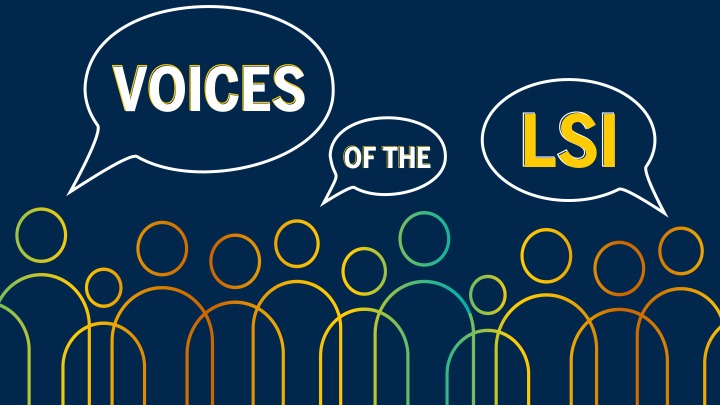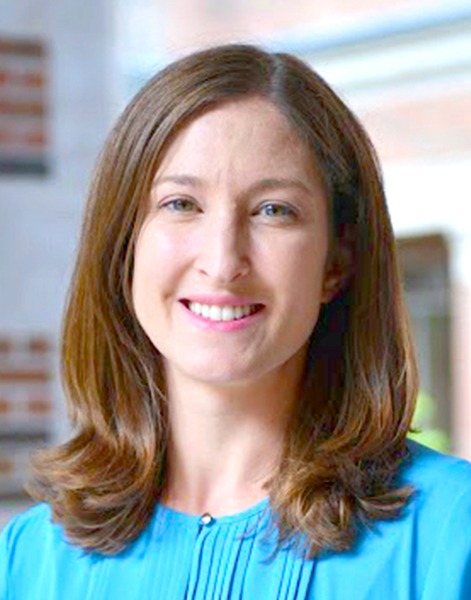
Voices of the LSI: Looking back to move forward — Lessons from DEI 1.0

In fall 2016, the University of Michigan launched its initial Diversity, Equity and Inclusion (DEI) Five-Year Strategic Plan, now dubbed “DEI 1.0.” As part of this university-wide initiative, each school, college and unit on all three U-M campuses developed its own unit-level five-year plan, which mapped out goals and objectives to reach these goals.
In the academic year following the end of DEI 1.0, units were tasked with evaluating the implementation of their five-year plans and progress toward their DEI goals. At the LSI, this evaluation process involved engaging with surveys and metrics reports, reviewing our DEI file archive, talking with colleagues, and re-reading newsletters, emails, and reports. During this process, we had the opportunity to reflect on what we have accomplished and where we need to go next.
Having served as one of the two DEI co-leads, along with Managing Director Anna Schork, since the launch of DEI 1.0, I was both inspired by what we found in this review and reinvigorated to further this work as we move toward DEI 2.0. Here are a few of the major takeaways we will carry with us into our continued work to advance diversity, equity, and inclusion at the LSI:
DEI is a team effort. DEI work at the LSI started well before we had a formal five-year strategic plan to execute. We also recognize that DEI at the LSI is not limited to efforts that are LSI-led. When the LSI kicked off our DEI 1.0 efforts, we were joining individuals who have long been doing great work within their own spaces, have engaged in self-learning, and have moved the needle toward DEI in many ways. While reflecting on our efforts, we were reminded of the many, many people who have helped along the way. From planning teams, review committees and trainees, to colleagues, peers, and LSI leadership, numerous people have lent us their time, energy, creativity, and ideas. We are grateful to all the individuals and groups who have helped our DEI progress so far. We look forward to working together and alongside the many individuals who hold DEI as a guiding principle in their work.
We are never done learning. In our efforts to support the LSI community, we haven’t always gotten it “right.” Our community members have provided us constructive feedback when something we have tried hasn’t been received well. Rather than viewing these situations as pitfalls, we see them both as opportunities — to pause, listen, learn, and course correct — and as evidence that we are heading in the right direction: This is precisely the type of environment we are striving to cultivate, where members of our community feel welcome to share their opinions with us and to help us all grow.
Top down or bottom up? Both. LSI leadership has been very supportive of DEI work and has provided resources, both human and financial, to support these efforts at the LSI. At the same time, much of what has been successful has been led by grassroots efforts from members of the LSI community. We are most successful when we can join the forces of grassroots leadership with upper leadership support.
Incremental changes add up ... As a research institute, we are working within a broader scientific research community that has its own practices and norms. The science community, like most working environments, has its own way of doing things and clings to practices “because that’s how we have always done it.” Change can take some getting used to, and the steps forward can feel incremental. When I think about where we started as a unit in our DEI journey five years ago, I can see how much these incremental changes have ultimately shifted our ways of working and thinking. DEI has become an integral part of every conversation and decision-making process.
…but we still have work to do. As we reviewed the many objectives we set forth in each year of our DEI plan for the LSI, we were encouraged to see that we had made progress on a number of objectives. We also acknowledge that we have not made as many gains as we would have liked to. We had to remind ourselves that the five-year period of DEI 1.0 was only an initial time frame, and success that takes longer than five years is still success. The work never ends; we just have to keep moving forward.
So what’s next? We are already hard at work to map out what DEI 2.0 will look like at the university and at the LSI. Together with other unit DEI teams, Anna and I joined LSI director Roger Cone for a full-day retreat to reflect on DEI 1.0, map out ideas for DEI 2.0, and plan for the LSI’s initial launch events for DEI 2.0. Pausing to reflect on what we have changed in the past years has allowed us to enter this retreat — and the next phase of DEI efforts — with renewed commitment to the critical work that still lies before us.


